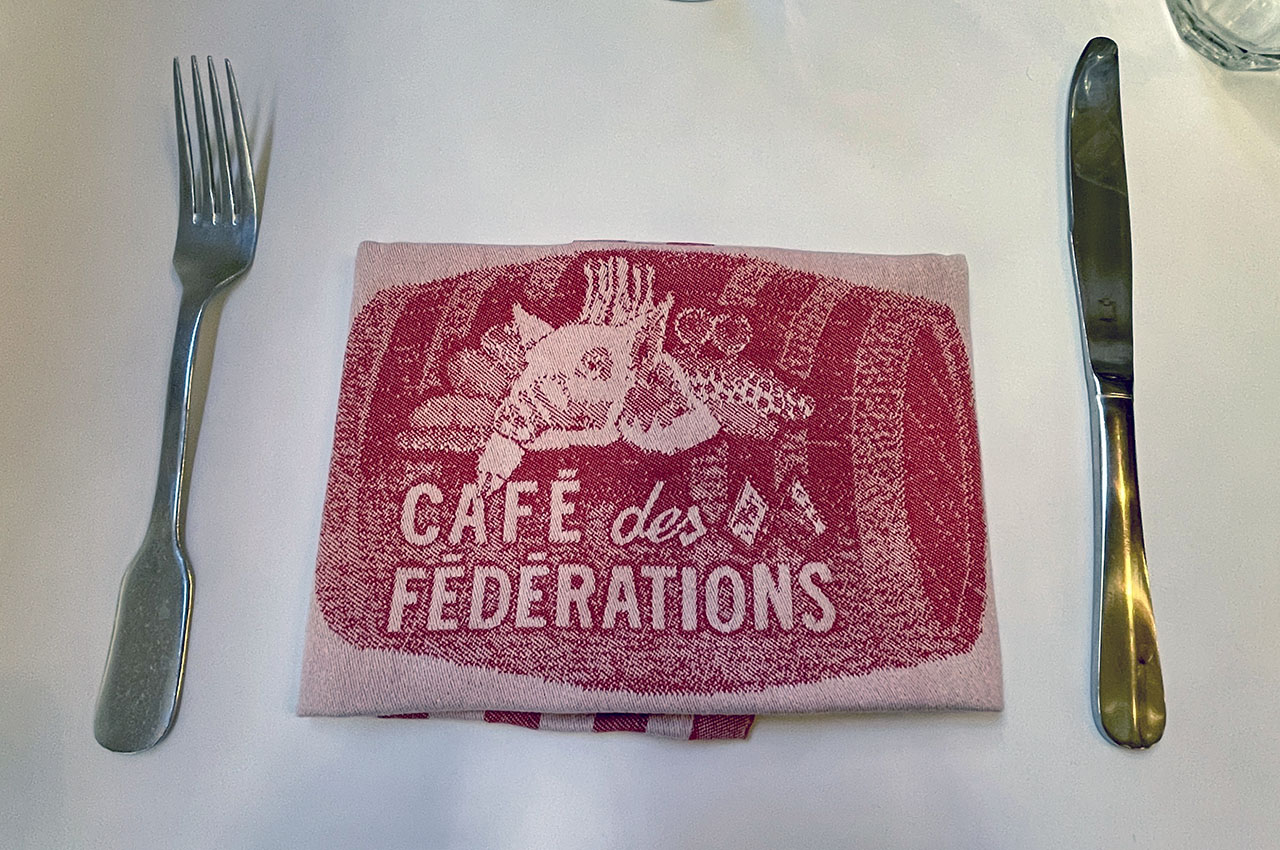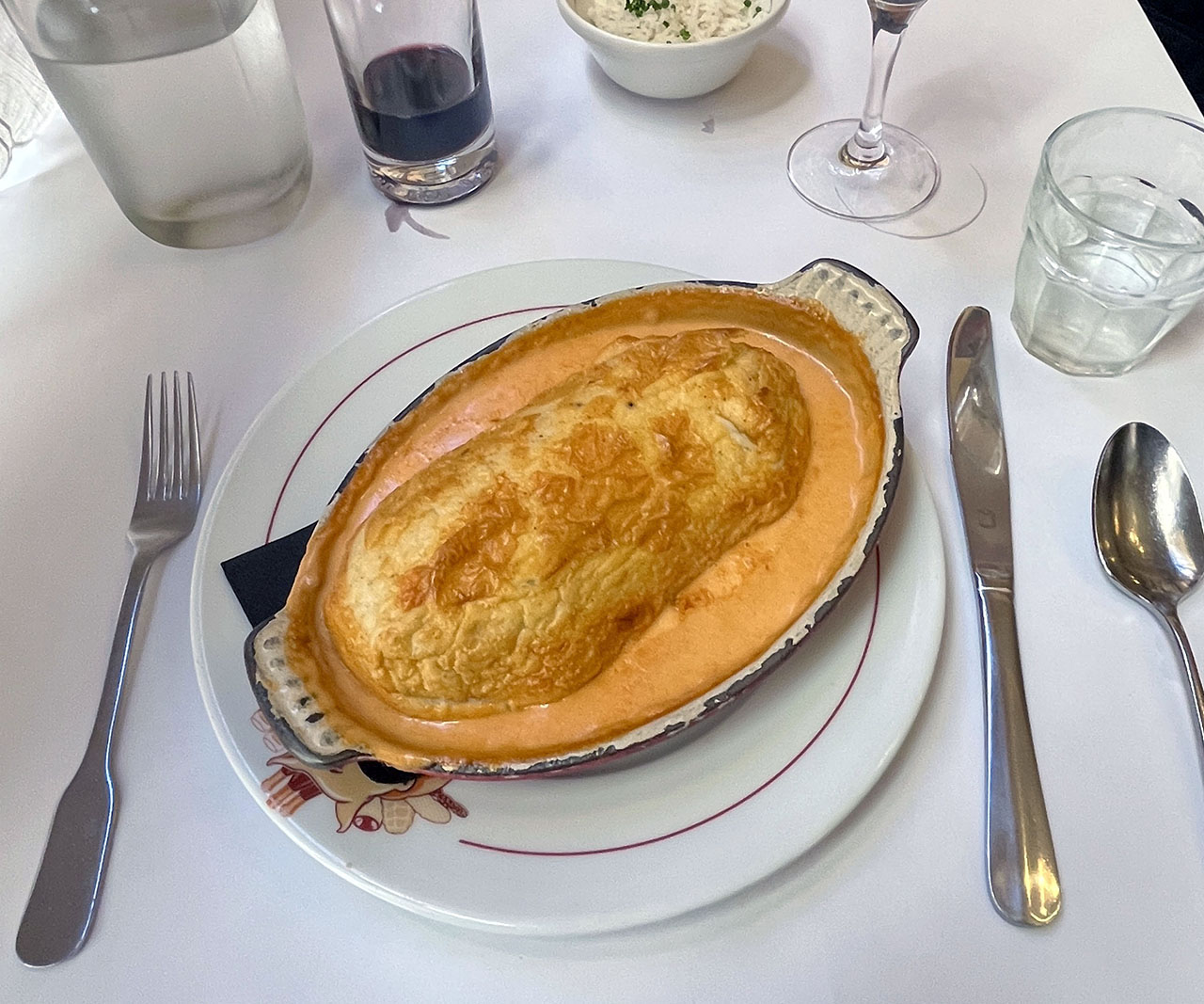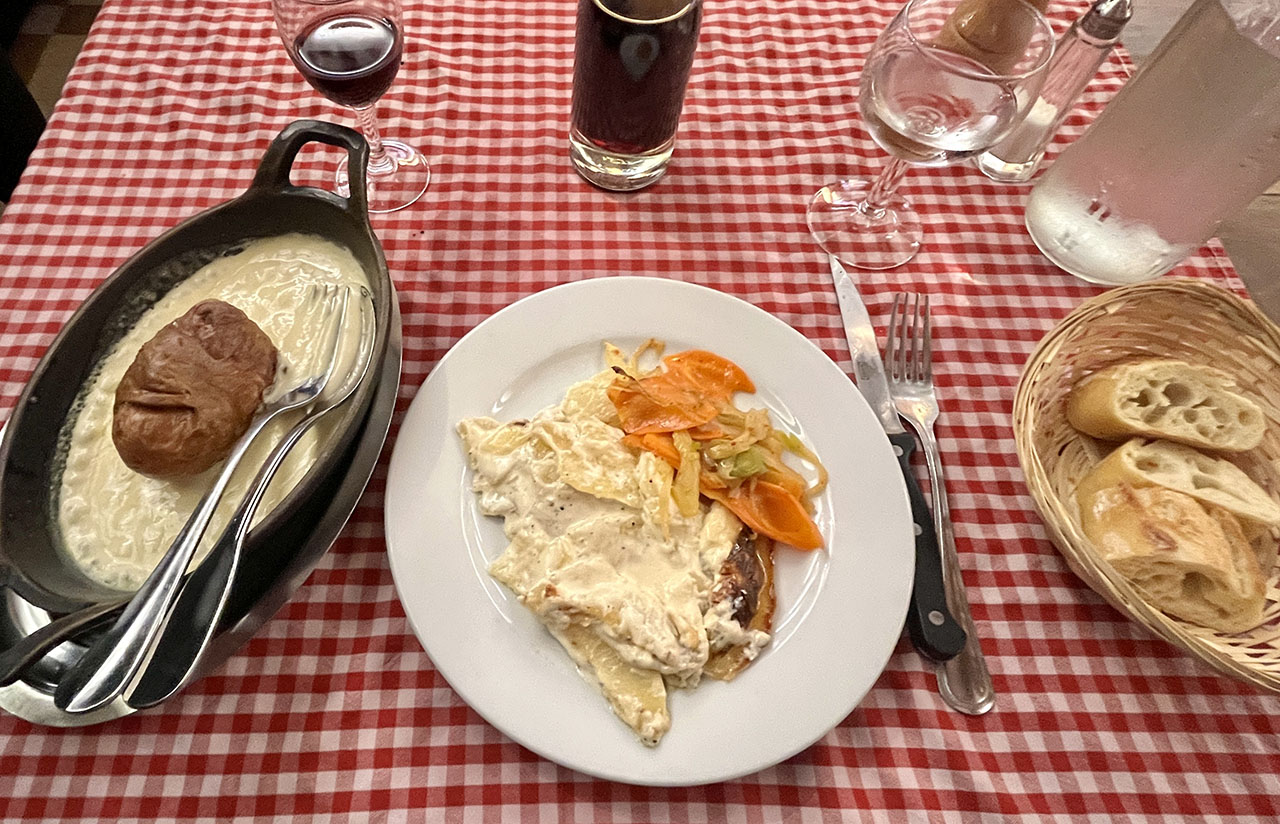

The air was dewy, carrying the hush of dawn through the narrow backstreets of Lyon. In a forgotten alley, a man fumbled with an iron key, its teeth catching in the stubborn lock of a heavy wooden door. With a grunt, it yielded, groaning open to reveal a dim interior lined with hanging meats and cured sausages. The scent of broth simmering on last night’s coals mingled with the tang of smoke and fat. He moved with quiet routine—pulling the blinds open to let in the weak morning light, setting each table with care, brushing away yesterday’s crumbs but leaving behind the warmth of yesterday’s laughter. Soon, he knew, workers and travelers would fill the room: hungry, tired, and seeking comfort in a bowl of soup and a cup of wine that didn’t demand ceremony.
That was Lyon in the early 1800s—honest, hardworking, and hungry. And though centuries have passed, that spirit hasn’t changed.
Modern Lyon feels like a city that has grown into itself. It has outlived its rebellions and its restlessness, changed hands between rulers and industries, but somehow kept its pulse steady. Its cobblestone streets and ochre façades wear the marks of history like proud scars. The people here carry that same quiet pride—of living somewhere that knows its purpose, that remembers where it came from.
Nowhere is that sense of rootedness clearer than in a bouchon.
Step inside one, and you step backward in time.


The moment the door swings open, the noise rushes to meet you. Laughter spills from crowded tables, silverware clatters, and conversations tumble over one another like waves in a small harbor. Families lean in close, animatedly dissecting the day’s gossip. Wine glasses flash like rubies under the yellow glow of hanging lamps. Plates come out steaming and plentiful—each one a small act of love disguised as a weekday meal.
There’s no pretense here. The tables are tight, the service brisk, the décor somewhere between charming and accidental. Yet every detail feels right. You’re not here to be impressed—you’re here to belong, if only for a few hours.
Try the quenelles de brochet, the city’s claim to culinary grace. They’re light as breath, spoonfuls of airy pike mousse that melt into a rich, buttery sauce. For the brave, there’s andouillette, a sausage so uniquely Lyonnais it defies description—earthy, assertive, and not for the faint-hearted. Order a carafe of house wine (the server will know which one you need before you finish asking), and let it cut through the richness like a friendly laugh.

By the time you’ve finished, the air has changed. The scent of spice, cheese, and charcuterie has settled into your clothes, your skin, your memory. You pay your bill, nod to the waiter, and slip back out through the same narrow door. For a few seconds, you linger there in the alleyway, still suspended somewhere between centuries—until the sound of a tram bell and the sight of a Zara sign remind you that time has moved on.
And yet, somewhere within that backroom glow, Lyon’s heart continues to beat the same way it did two hundred years ago—slow, generous, and full of flavor.
It’s comforting to know that, in a city so modern, there’s still a small doorway through which you can escape it all—if only for the duration of a meal.